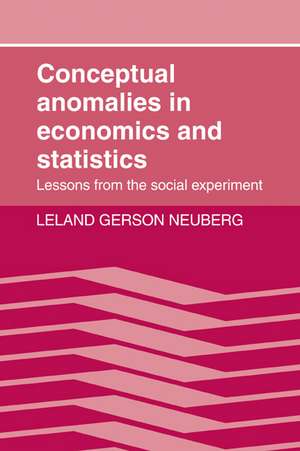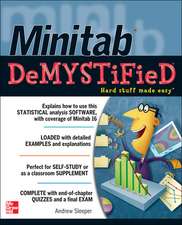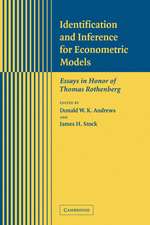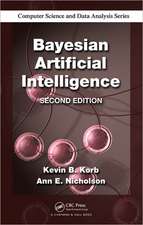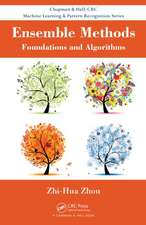Conceptual Anomalies in Economics and Statistics: Lessons from the Social Experiment
Autor Leland Gerson Neubergen Limba Engleză Paperback – 30 iul 2008
| Toate formatele și edițiile | Preț | Express |
|---|---|---|
| Paperback (1) | 404.97 lei 6-8 săpt. | |
| Cambridge University Press – 30 iul 2008 | 404.97 lei 6-8 săpt. | |
| Hardback (1) | 786.15 lei 6-8 săpt. | |
| Cambridge University Press – 25 mai 1989 | 786.15 lei 6-8 săpt. |
Preț: 404.97 lei
Nou
Puncte Express: 607
Preț estimativ în valută:
77.51€ • 80.61$ • 64.95£
77.51€ • 80.61$ • 64.95£
Carte tipărită la comandă
Livrare economică 14-28 martie
Preluare comenzi: 021 569.72.76
Specificații
ISBN-13: 9780521070218
ISBN-10: 052107021X
Pagini: 380
Dimensiuni: 158 x 229 x 23 mm
Greutate: 0.55 kg
Editura: Cambridge University Press
Colecția Cambridge University Press
Locul publicării:New York, United States
ISBN-10: 052107021X
Pagini: 380
Dimensiuni: 158 x 229 x 23 mm
Greutate: 0.55 kg
Editura: Cambridge University Press
Colecția Cambridge University Press
Locul publicării:New York, United States
Cuprins
Preface; Introduction; Part I. Statistical Logics: 1. J. S. Mill and some philosophical underpinnings of controlled experimentation; 2. R. A. Fisher, randomization, and controlled experimentation; 3. Some special difficulties of controlled social experiments; 4. Hume's problem of induction in modern statistical inference and controlled experimentation; Part II. Economic Logics: 5. Problems with a rationalist account of classical mechanics; 6. Microeconomics striving to be a classical-mechanics-like science; 7. The income maintenance experiments: microeconomic science or scientism?; 8. Microeconomics striving to be deontology; Conclusion; Appendix; References; Symbols and abbreviations; Index.
Recenzii
"A critical introduction to the field recommended to strong souls capable of combining expertise with modesty." B. Hamminga, Erkenntnis
"This is a quite extraordinary book...a 'tour de force'." A. Lewis, Journal of Economic Psychology
"The book as a whole makes one think. I would like to think it be made compulsory reading for all economists." J.D. Hey, Economic Journal
"This is a quite extraordinary book...a 'tour de force'." A. Lewis, Journal of Economic Psychology
"The book as a whole makes one think. I would like to think it be made compulsory reading for all economists." J.D. Hey, Economic Journal
Descriere
This book explores anomalies in the conceptual basis of controlled social experiments.
